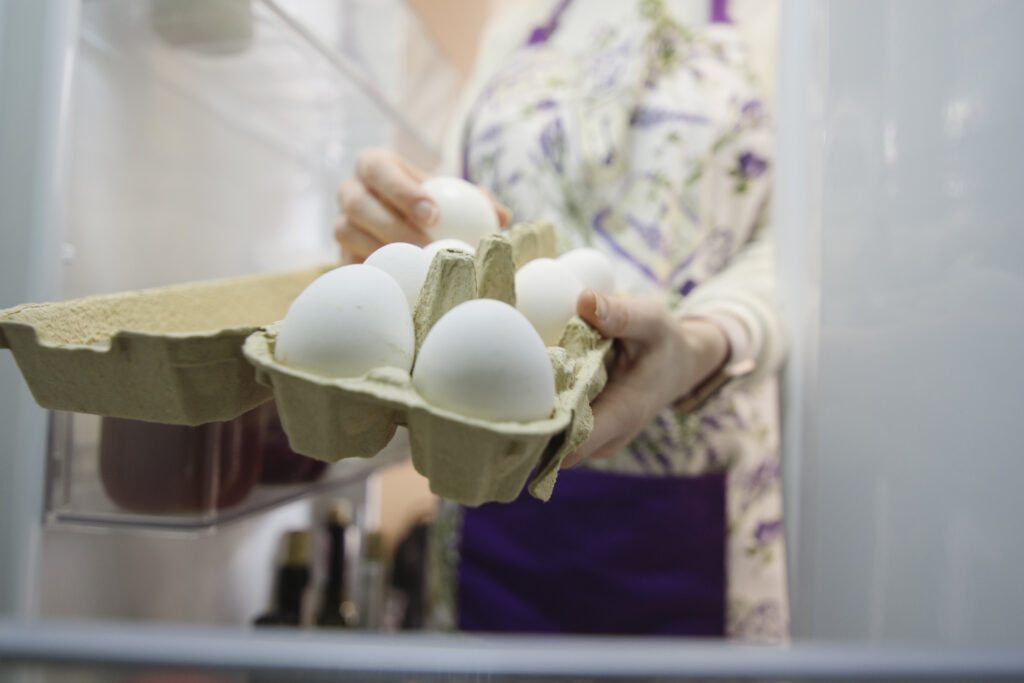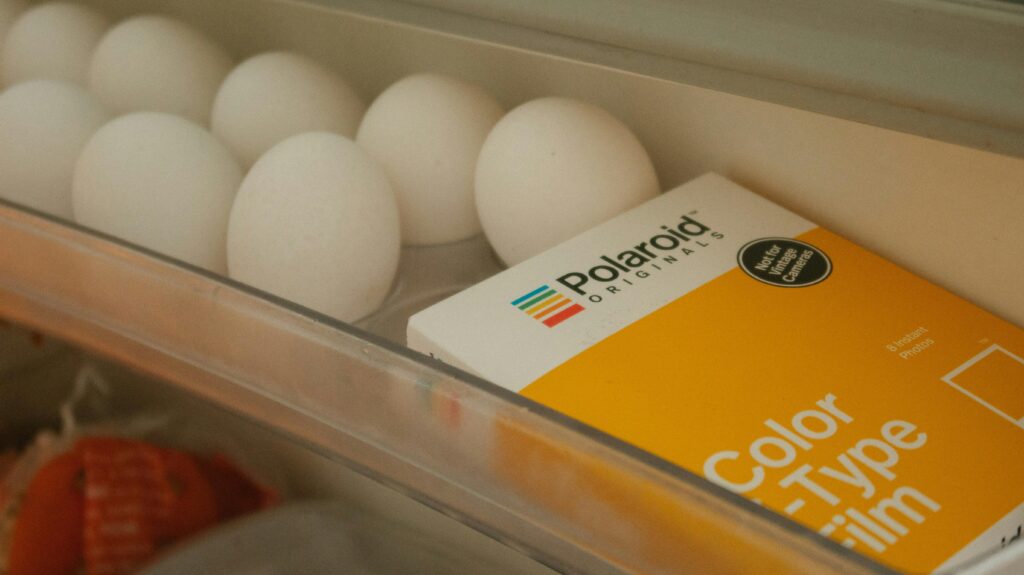Introduction: The Importance of Egg Safety
Eggs are a staple in households around the world—versatile, protein-packed, and affordable. But despite their everyday use, eggs come with strict food safety guidelines that, if ignored, can result in foodborne illnesses like salmonella. So, how long can eggs be out of the refrigerator before they become unsafe to eat? In this guide, we’ll explore the answer with scientific backing, practical tips, and expert recommendations. Understanding the safe limits of egg storage isn’t just about convenience—it’s about health.

Photo by Nguyễn Hiệp on Unsplash
Understanding Egg Types and Their Storage Needs
Not all eggs are created equal. The way they’re processed, handled, and stored can dramatically affect how long they stay fresh without refrigeration.
Farm Fresh Eggs vs. Store-Bought Eggs
- Farm Fresh Eggs: Often unwashed and have a natural protective coating called the bloom or cuticle, which helps keep out bacteria and moisture. These can last longer outside refrigeration—sometimes up to 2-3 weeks.
- Store-Bought Eggs: Washed and sanitized, removing the bloom. While this prevents contamination during mass handling, it also makes the eggs more vulnerable to bacteria when stored at room temperature.
Washed vs. Unwashed Eggs
| Egg Type | Washed? | Refrigeration Needed? | Room Temp Shelf Life |
| Store-bought | Yes | Yes | 2 hours max |
| Farm fresh (unwashed) | No | No (short-term) | 2–3 weeks |
| Farm fresh (washed) | Yes | Yes | 2 hours max |
Key Tip: Once an egg is refrigerated, keep it that way. Fluctuating temperatures can cause condensation, increasing bacterial growth.
USDA Guidelines on Egg Refrigeration
The USDA is very clear on this: all commercial eggs in the U.S. must be refrigerated at or below 40°F (4°C) and should not sit out for more than 2 hours. This recommendation is rooted in reducing the risk of salmonella, a common culprit in egg-related food poisoning cases.
The 2-hour rule isn’t arbitrary. It’s the time frame within which perishable foods can remain at temperatures above 40°F before the risk of bacterial growth escalates.
Official Source: USDA Egg Safety Guidelines
How Long Can Eggs Sit Out at Room Temperature?
Factors That Affect Shelf Life
The answer depends on several variables:
- Egg origin (washed or unwashed)
- Ambient temperature (warmer climates = faster spoilage)
- Humidity levels
- Shell condition (cracks = contamination risk)
The 2-Hour Rule Explained
If your eggs are store-bought and have been refrigerated, they should not be left out for more than 2 hours at room temperature. In summer or in hot climates (above 90°F), that window shrinks to 1 hour.
| Room Temp | Safe Duration |
| Below 70°F | 2 hours max |
| Above 90°F | 1 hour max |
What Happens When Eggs Are Left Out Too Long?
Bacterial Growth and Contamination Risks
Eggs naturally contain bacteria, but when they’re refrigerated, bacterial growth slows dramatically. At room temperature, however, bacteria like salmonella multiply rapidly—especially if eggs have tiny cracks or moisture on the shell.
Salmonella: Facts and Myths
- Myth: You can always tell if an egg has salmonella.
- Fact: Salmonella-infected eggs can appear and smell completely normal.
- Myth: Cooking kills all bacteria.
- Fact: Yes, but only if eggs are cooked to an internal temp of 160°F (71°C).
Signs That an Egg Has Gone Bad
Not sure if your egg is still good? Use these quick checks.
The Float Test
Drop the egg in a bowl of water:
- Sinks and lays flat: Fresh
- Sinks and stands upright: A bit old but usable
- Floats: Bad – toss it!
Smell and Visual Inspection
- A sour or sulfuric smell = spoiled egg
- Cracks or unusual discoloration inside the shell = discard
Quick Tip: Don’t rely solely on expiration dates. Always do a physical check.

Image by freepik
Proper Ways to Store Eggs
Ideal Fridge Temperature
Keep your refrigerator at or below 40°F (4°C). Avoid the fridge door, which fluctuates more in temperature. Instead, store eggs on a middle shelf in their original carton.
Egg Carton or Tray: What’s Better?
| Storage Method | Pros | Cons |
| Carton (Original) | Protects from odor absorption and moisture loss | None |
| Egg Tray | Looks organized | No protection from smells, temp fluctuation |
International Practices: Why U.S. Eggs Must Be Refrigerated
Europe vs. America: A Tale of Washing and Regulation
In Europe, eggs are not washed—preserving the natural bloom. As a result, they’re safe to store at room temperature for longer periods.
In the U.S., eggs are washed and sanitized, stripping their protective coating, which makes refrigeration necessary.
| Region | Washed? | Refrigeration Required? |
| USA | Yes | Yes |
| EU | No | No (unless washed) |
How to Handle Eggs for Maximum Freshness
Safe Handling Tips
- Wash hands before and after handling raw eggs.
- Avoid cross-contamination with cutting boards or kitchen tools.
- Crack eggs into a separate bowl to inspect before using.
Transporting Eggs Without Refrigeration
If you must travel with eggs:
- Use a cooler with ice packs
- Store in an insulated container
- Limit exposure to temps over 40°F to under 2 hours

Image by freepik
7 Expert Tips to Keep Eggs Safe and Fresh
- Don’t wash farm-fresh eggs unless you’re ready to use them.
- Keep eggs in the carton—they stay fresher longer.
- Check for cracks regularly.
- Use older eggs for baking, fresher ones for poaching or frying.
- Don’t switch eggs from cold to warm and back—causes sweating and bacteria growth.
- Store pointy end down to keep yolk centered and fresh.
- Label farm eggs by collection date to track freshness.
FAQs
1. Can I eat an egg that’s been left out overnight?
No. If it’s a store-bought, washed egg, it should be discarded if left out for more than 2 hours.
2. How can I tell if an egg has gone bad?
Use the float test and smell check. Bad eggs float and usually smell unpleasant.
3. Is it safe to eat eggs that have been frozen accidentally?
Cracked eggs that freeze should be thrown out. Whole, uncracked ones may be safe if cooked thoroughly.
4. Are farm-fresh eggs safe to leave out?
Yes, unwashed farm eggs can be kept at room temperature for up to 3 weeks. Once washed, they require refrigeration.
5. What temperature kills salmonella in eggs?
Cook eggs to 160°F (71°C) to kill salmonella.
6. Do eggs last longer if stored in the fridge or at room temp?
Refrigerated eggs last longer—up to 5 weeks or more, while room temp shelf life is much shorter.

Photo by Athena Sandrini
Conclusion: Play It Safe with Egg Storage
Eggs may be small, but they demand serious respect when it comes to storage. The rule of thumb? If in doubt, throw it out. Whether you’re working with fresh farm eggs or a grocery store dozen, understanding how long eggs can be out of the refrigerator can protect your health and keep your kitchen safe. Stick to USDA guidelines, perform regular freshness checks, and use the 7 safety tips above to ensure your eggs always stay in top shape.
